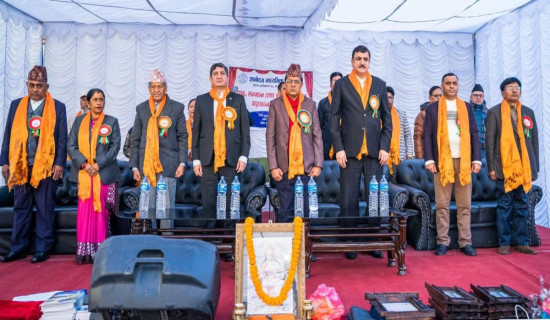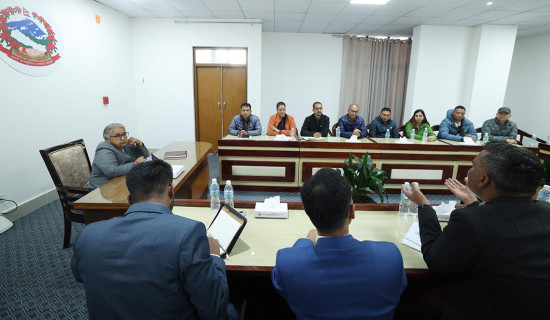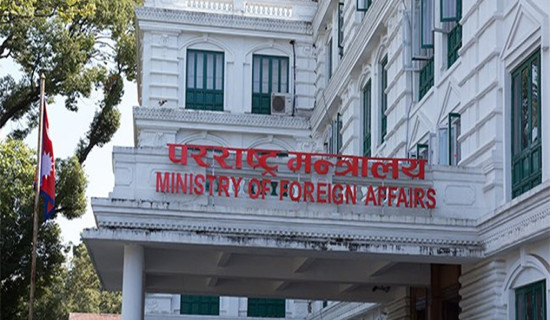- Monday, 1 December 2025
Building Polls Environment
Tihar, the festival of lights, has concluded peacefully. Nepalis at home and abroad marked the festival with great enthusiasm, even though the country has not overcome the pains caused by the killings of youth on September 8, followed by senseless violence and destruction the following day. However, when people were busy marking the festival, important moves were made towards building reconciliation among the political forces and creating a favourable environment for the March 5 elections to the House of Representatives. On Tuesday, Prime Minister Sushila Karki held an all-party discussion, the first after the formation of the interim government, bringing together representatives of all major political forces. The meeting held at the Prime Minister’s official residence in Baluwatar has sent a positive message that a collaborative spirit is emerging to ensure the timely and credible conduct of the elections.
The Prime Minister convened the meeting of the major political parties at a time when criticisms circulated over the delay in holding such a crucial meeting. The major political parties also responded to her call positively and sent their representatives to the icebreaker meeting. Leaders from the Nepali Congress, CPN-UML, CPN (Maoist Centre), Rastriya Swatantra Party, CPN (Unified Socialist), Rastriya Prajatantra Party, Janata Samajbadi Party, and others attended the discussions in a gesture of goodwill and cooperation. The discussions between Prime Minister Karki and the political parties have instilled hope among the people and the political parties that the country will soon overcome the political transition by holding timely polls.
The government has also interpreted the convergence of October 21 as a constructive beginning toward creating the atmosphere needed for peaceful elections. Prime Minister Karki reiterated her commitment to holding the elections in a free, fair, and impartial manner and urged all political parties to contribute to the creation of a conducive environment. The assurance of support expressed by the political parties during the meeting marks a welcome development. This was rightly noted by Minister for Communications and Information Technology and government spokesperson Jagdish Kharel by saying that all parties had shown positivity toward the elections and recognised the need for cooperation in safeguarding the democratic process.
Besides the Baluwatar meeting, other activities and statements by political figures made during the five-day festival also showed that a pro-election environment is gradually emerging in the country to bring the derailed democratic system back on the right track. The Election Commission (EC) has continued registering new political parties, including those formed after the Gen Z movement. The EC has said that the number of new parties registered with it has been on the rise. Currently, the EC is assessing the documents of five new parties. It has said it will provide a period of 10 days -- from November 17 to 26 -- for parties to get registered for election purposes. More parties registering with the EC means more political parties are preparing to contest the upcoming elections. Indeed, only elections will prove the relevance of any political party; therefore, each party wants to contest elections in a democracy.
While the government and EC are working to prepare the ground for holding the March 5 elections, top leaders of major political parties, including Acting President of Nepali Congress Purna Bahadur Khadka have expressed their readiness to go for the election. What they have expected from the government is the creation of a fear-free election environment and a guarantee of their security, which Prime Minister Karki has assured time and again. Of course, only elections will give a way out to the present political stalemate, and one and all should cooperate with the government to make the March 5 polls a success.



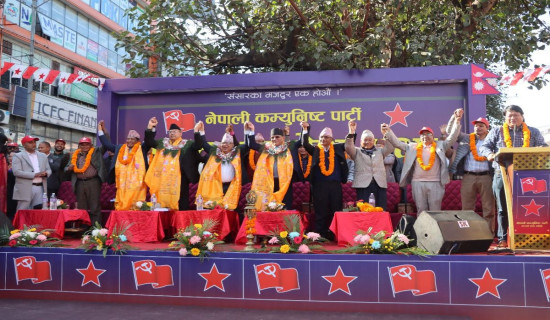

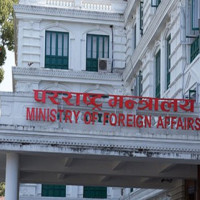
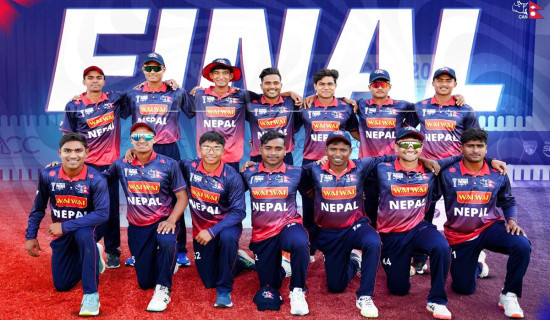
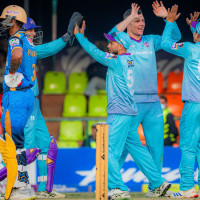
-square-thumb.jpg)


